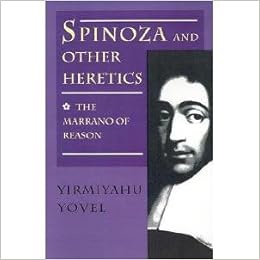Witnessing HDP victory in Turkey: Election monitors report back
Where: Committee Room 6, House of Commons, London SW1A 0AA
When: Tuesday 7 July 2015 // 6.30pm - 8.30pm
Hosted by Kate Osamor MP
When: Tuesday 7 July 2015 // 6.30pm - 8.30pm
Hosted by Kate Osamor MP
Speakers:
Dr Thomas Jeffrey Miley, Lecturer in Political Sociology in Department of sociology at Cambridge University Melanie Gingell, human rights lawyer; barrister, Doughty Street ChambersBronwen Jones, family and immigration barrister, Mansfield ChambersJohn Hunt, journalist, writer, and editorSean Hawkey, photojournalist and Green Party memberDerek Wall, International Coordinator of the Green Party of England and Wales
---
Dr Thomas Jeffrey Miley, Lecturer in Political Sociology in Department of sociology at Cambridge University Melanie Gingell, human rights lawyer; barrister, Doughty Street ChambersBronwen Jones, family and immigration barrister, Mansfield ChambersJohn Hunt, journalist, writer, and editorSean Hawkey, photojournalist and Green Party memberDerek Wall, International Coordinator of the Green Party of England and Wales
---
On 7th May the pro-Kurdish People’s Democratic Party, the HDP, won a historic victory in Turkey’s general elections and gained 13.1% of the national vote, surpassing the 10% threshold by a margin unexpected by even their most avid supporters. For the first time in the history of modern Turkey, an openly pro-Kurdish party will officially take up seats in Parliament.
Not only did the result prevent the AKP winning a majority, and in doing so curtail President Erdogan’s creeping authoritarianism, it also signifies a potentially dramatic advance for the Kurdish movement, which continues to struggle for self-determination and equality within Turkey and the region.
Peace in Kurdistan Campaign invites you to this public event to hear from our team of election observers, who spent 5 days in Turkey’s southeast to witness the outcome of the elections. They will provide insight into the HDP’s democratic project, which incorporates gender equality, pluralism, and ecologism, and the implications of the HDP’s success for the Turkish-Kurdish peace process, strengthening of Turkish democracy and Turkey’s policy towards Rojava and Syria.
---
Read the statement written by the delegation on their return here: http://peaceinkurdistancampaign.com/uk-election-monitors-return-from-turkey-following-stunning-hdp-result/
This event will begin at 6.30pm - please allow 30 minutes to go through security at the Houses of Parliament.
For more information, please contact:
For more information, please contact:
Peace in Kurdistan Campaign for a political solution of the Kurdish Question
Email: estella24@tiscali.co.uk <mailto:estella24@tiscali.co.uk>
www.peaceinkurdistancampaign.com
Contacts Estella Schmid 020 7586 5892 & Melanie Sirinathsingh - Tel: 020 7272 7890
Fax: 020 7263 0596
Patrons: Lord Avebury, Lord Rea, Lord Dholakia, Baroness Sarah Ludford, Jill Evans MEP, Jean Lambert MEP, Jeremy Corbyn MP, Hywel Williams MP, Elfyn Llwyd, Conor Murphy, John Austin, Bruce Kent, Gareth Peirce, Julie Christie, Noam Chomsky, John Berger, Edward Albee, Margaret Owen OBE, Prof Mary Davis, Mark Thomas, Nick Hildyard, Stephen Smellie, Derek Wall


